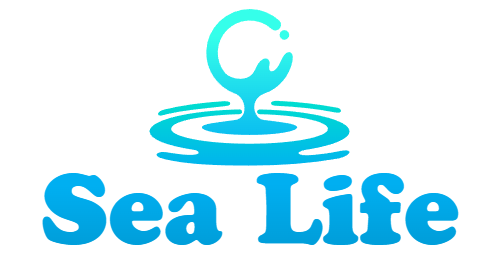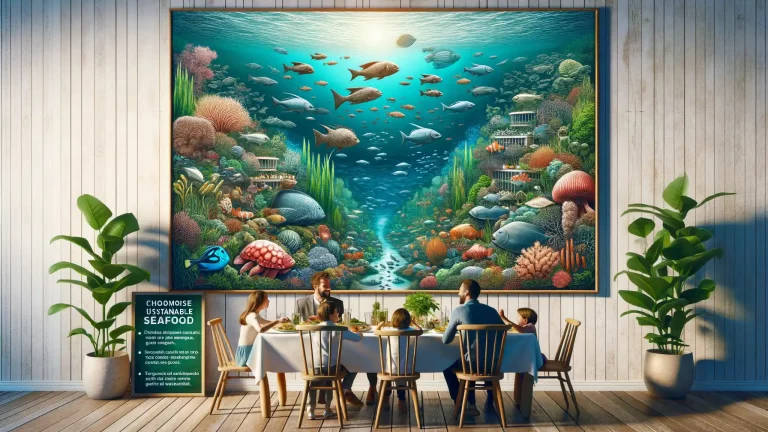Understanding the Impact of Overfishing on Ocean Ecosystems
Why Overfishing Feels Like Pulling Threads from a Tapestry
Imagine the ocean as a vast, intricate tapestry—every creature, every plant, intertwined in a delicate balance. Now picture someone yanking out thread after thread. That’s what overfishing does to marine ecosystems. By targeting certain fish populations, like tuna or cod, we disrupt the entire web of life beneath the waves. Predators lose their prey, coral reefs can become overrun by algae, and entire food chains start collapsing.
Take the humble anchovy, for instance. They may seem small and insignificant, but they’re the foundation of countless ecosystems. Overfishing them doesn’t just impact your Caesar salad; it ripples out to affect seabirds, larger fish, and even whales. Over time, the ocean becomes eerily empty—a stark contrast to its once teeming, vibrant waters.
- From shrinking fish sizes to dwindling biodiversity, the signs of overfishing are everywhere.
- Coral reefs, already threatened by warming waters, struggle even more without the right mix of species keeping things in balance.
Choosing sustainable seafood isn’t just about preserving fish populations—it’s about protecting the heart of the ocean itself.
Benefits of Choosing Sustainable Seafood

Why Your Seafood Choices Matter More Than You Think
Every time you decide what lands on your dinner plate, you’re casting a vote—for ocean health or for its decline. By choosing sustainable seafood, you’re doing more than indulging in a delicious meal. You’re becoming a guardian of marine life. Imagine the ripple effects of that one decision: fish populations boom, coral reefs thrive, and coastal communities prosper.
Here’s the magic: sustainable seafood is harvested in ways that protect species, habitats, and even future generations of fishers. It’s like giving the oceans room to breathe again. Doesn’t that feel empowering?
- Healthier oceans: Sustainable practices prevent overfishing and reduce unintentional harm to creatures like sea turtles and dolphins.
- Better nutrition: Many sustainably sourced options tend to be fresher and higher-quality, creating a feast for your taste buds and your body.
- Stronger local communities: Supporting responsible fisheries means boosting livelihoods for people who depend on the sea to survive.
The Emotional Payoff of Doing Good
There’s something deeply satisfying about knowing your choices align with your values. When you savor a piece of sustainably caught salmon or shrimp, you’re not just eating food—you’re part of a global movement that respects nature. It’s a reminder that small, thoughtful choices can create huge waves of change.
Guidelines for Identifying Sustainable Seafood Options
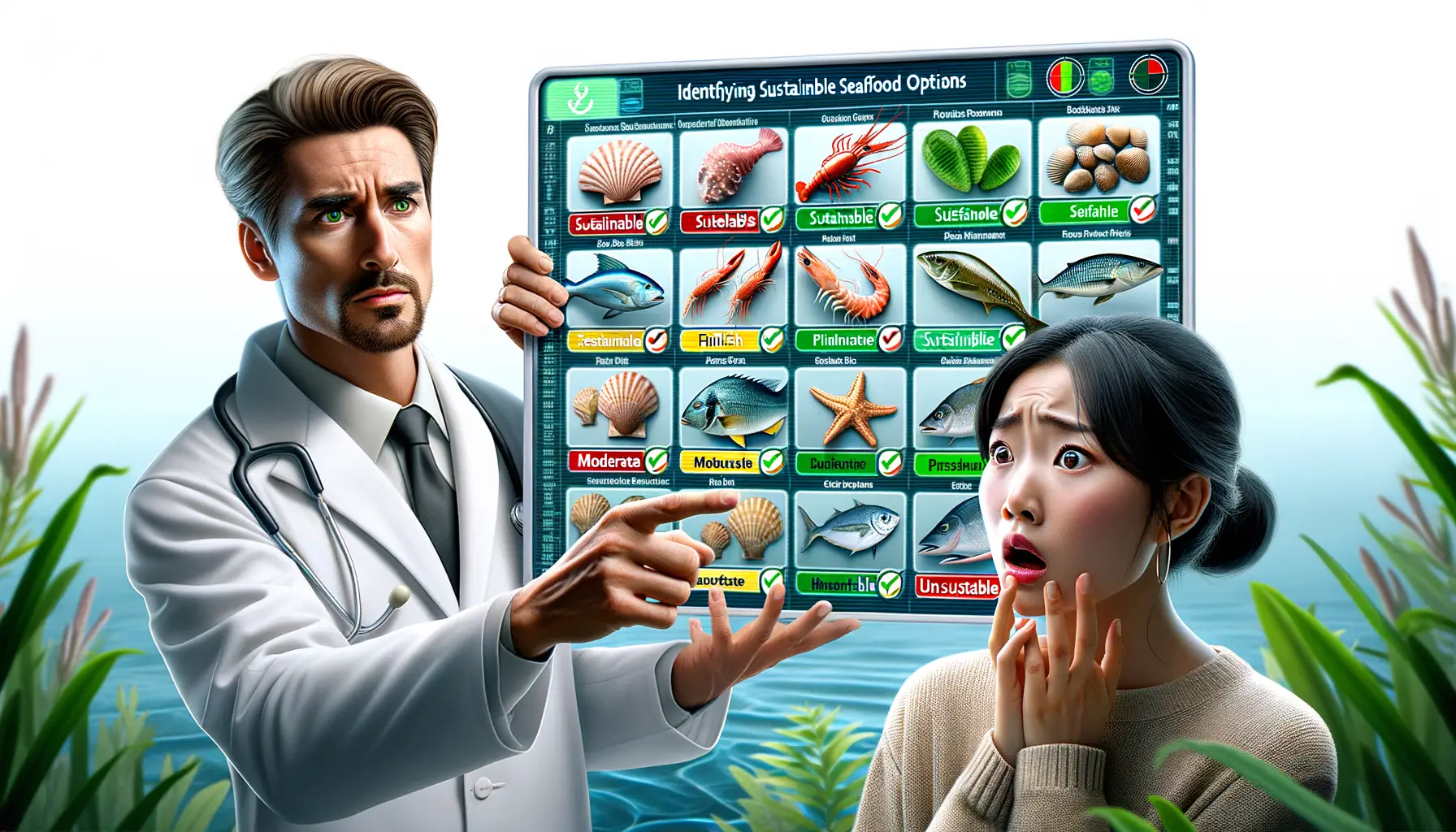
Spotting Ocean-Friendly Choices at the Market
Picture this: a dazzling display of seafood at your local store, but how do you know what’s both delicious and kind to the ocean? Navigating sustainable options doesn’t need to feel like deciphering a treasure map! With a few guiding principles, you’ll shop smarter and save marine wildlife in the process.
First, zoom in on where your seafood came from. Was that juicy salmon wild-caught or farm-raised? Look for details like “line-caught” or “trap-caught.” These methods often have a lower impact on fragile ecosystems compared to large-scale trawling methods that can leave underwater habitats devastated.
Keep a curious eye on seasonality, too. Just like fruits and veggies, seafood has its harvest seasons! Opt for what’s in season right now in your region—it often signals sustainability and freshness.
Remember: your dinner plate is a powerful vote. By choosing with care, you’re directly influencing the health of our oceans and giving wildlife a fighting chance to thrive.
Role of Certifications and Labels in Promoting Sustainability
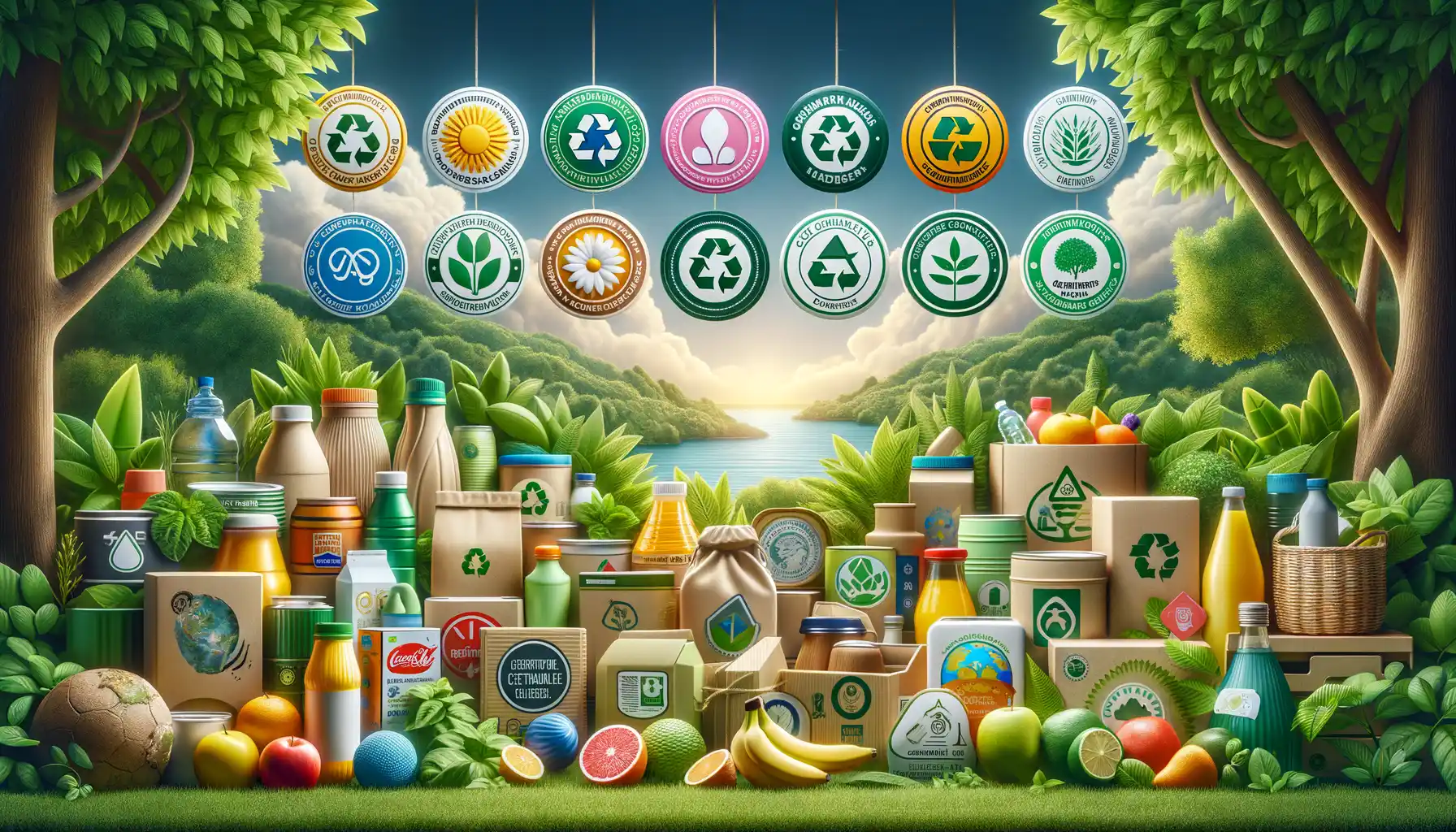
Why Certifications Are Your Loyalty Badge to the Ocean
Ever feel overwhelmed by the sea of seafood options at the store? You’re not alone. But here’s the secret: certifications and labels are your compass for making ocean-friendly choices. Think of them as the “loyalty badges” for brands and fisheries that have committed to protecting our fragile marine ecosystems.
These certifications aren’t just fancy stickers slapped onto packages—they tell an important story. For example, the Marine Stewardship Council (MSC) blue tick ensures the fish was caught without harming endangered species or overfished populations. Then there’s Aquaculture Stewardship Council (ASC), which backs responsible farming practices, reducing pollution and supporting local communities.
- Look for Fair Trade Certified Seafood if you care about the hands pulling nets, ensuring ethical working conditions.
- Spot labels like Seafood Watch Recommendations to avoid species caught with destructive methods.
These labels simplify a complex issue but don’t mistake simplicity for insignificance. They’re your reminder that with every choice—yes, even that sushi night—you’re shaping the destiny of our oceans.
Actions Consumers Can Take to Support Sustainable Seafood Practices
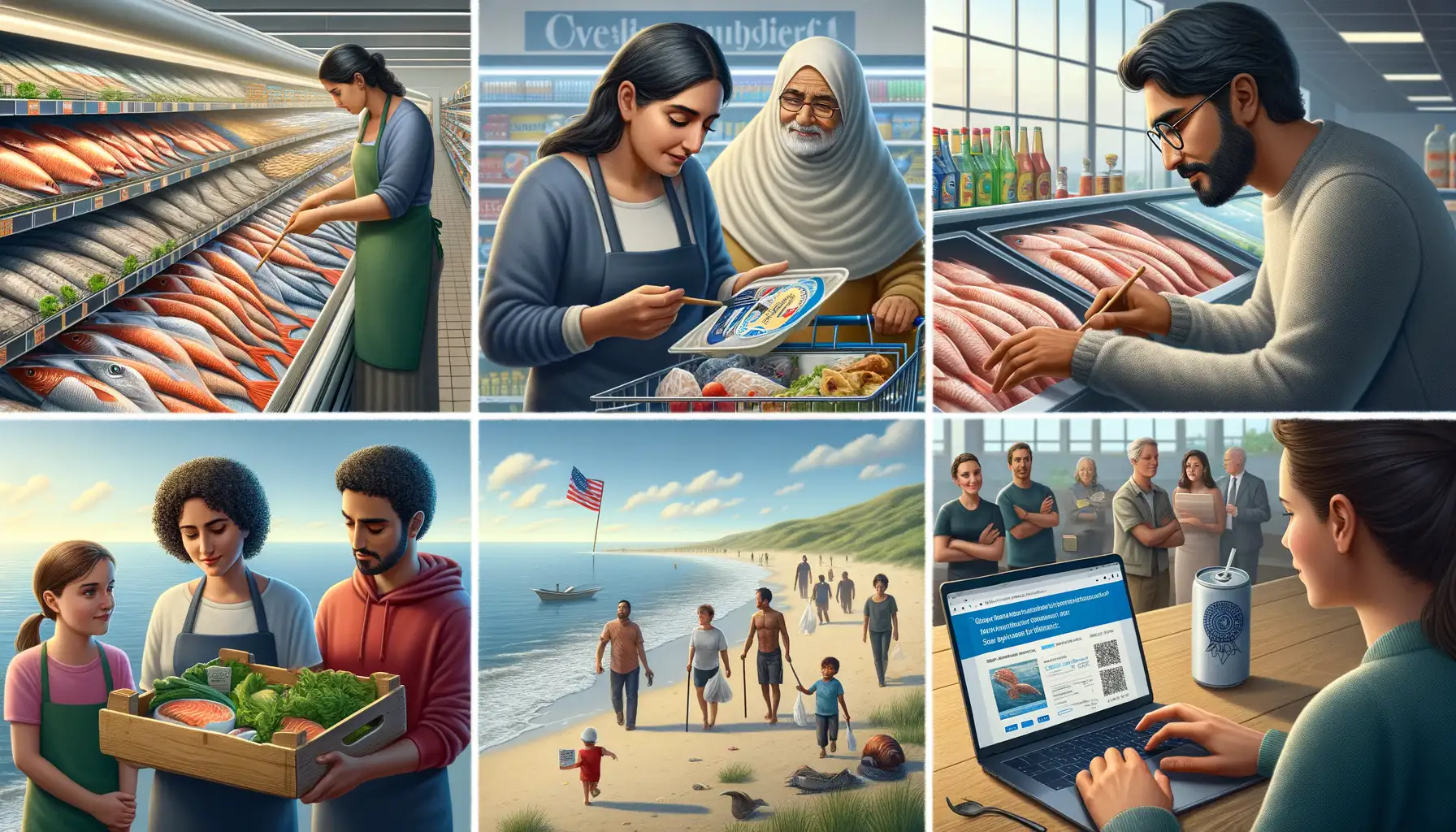
Easy Shifts in Your Everyday Choices
Every meal you eat is a chance to be an ocean hero. Yes, you! Supporting sustainable seafood doesn’t require you to overhaul your life—it’s about making simple swaps and asking good questions. When you’re at the grocery store or dining out with friends, consider these small but impactful actions:
- Order fish that’s local and in season—just like fruit, seafood has seasons too!
- Say “no thanks” to overfished species like bluefin tuna or unsustainable shrimp.
- Look for trusted labels like MSC Blue Fish or ASC Certified.
These steps are not just convenient—they’re empowering. When you say no to unsustainable choices, you’re voting with your wallet for healthier oceans.
Be Curious: Knowledge Powers Action
Don’t be afraid to start conversations. Ask your fishmonger, “Where was this caught?” or “Was this farm raised sustainably?” Sure, it might feel a little bold the first time, but curiosity sparks change. Retailers will notice when more of us ask these kinds of questions. And let’s be real—the pride you’ll feel bringing home dinner that’s aligned with your values? It’s unmatched.
Small actions snowball into big impacts. You’re not just consuming; you’re shaping the future of seafood—and the oceans themselves.
